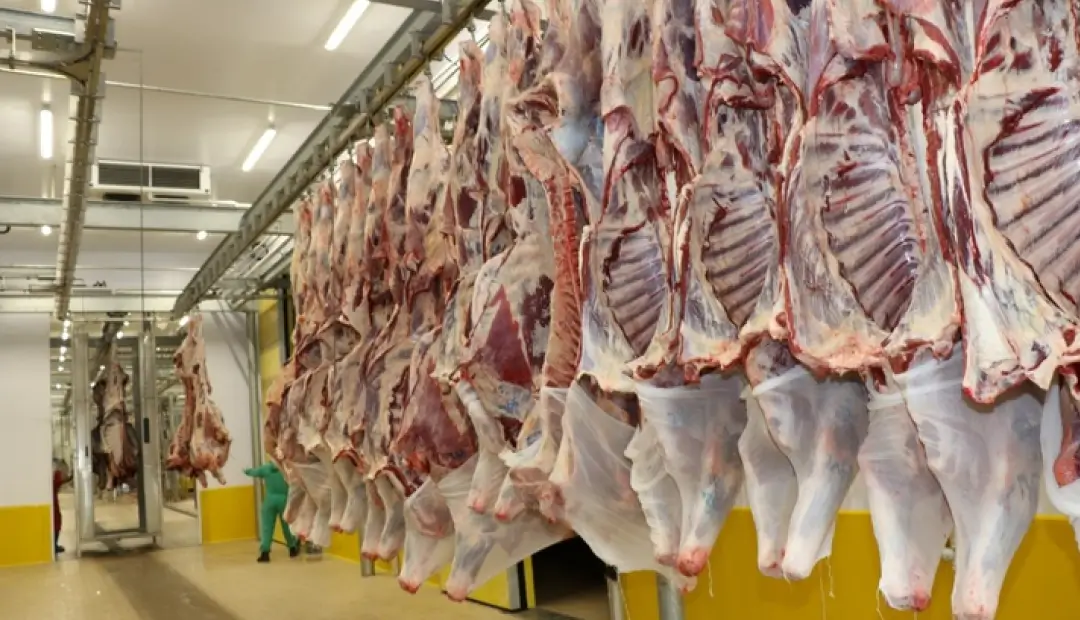Meat consumption is gradually increasing in Muslim and muslim-majority countries, driven by factors like population growth and economic development, which has also subsequently increased the demand for halal-certified meat imports within these regions.
Halal Meat Consumption Numbers
A key member of American Halal Foundation’s international growth division believes meat consumption has doubled in Muslim majority countries over the last two decades.
As meat is a high risk component under the Islamic dietary guidelines, Muslim-majority countries require the entire supply chain to be halal-certified for meat imports.
This guide provides step-by-step instructions for slaughterhouses to get approved for halal exports, covering certification, key authorities, government requirements, and market-specific tips.
How to Obtain Halal Certification for Meat Export?
Here is a step-by-step guide to obtain halal certification for exporting meat into muslim-countries.
Step 1. Prepare Your Slaughterhouse for Halal Compliance
Long before the halal audit of your facility takes place, you need to implement the following halal-compliant processes:
- Qualified Personnel: Employ practicing Muslim slaughtermen to perform the slaughter (required by Islamic law and certifiers).
- Animal Welfare & Method: Follow approved halal slaughter methods – typically a single cut to the throat with a sharp knife while invoking God’s name (tasmiyah). Stunning, if used, must not kill the animal, and the animal must be thoroughly bled. Read more regarding the AHF halal standards for slaughter here.
- Facility Hygiene: Clean and sanitize to prevent cross-contamination. In order to export to muslim countries abroad, the facility cannot handle non-halal proteins (e.g. pork).
- Traceability Systems: Implement record-keeping to trace each batch of meat to halal-slaughtered animals. Maintain separate inventory logs and clear “Halal” labels to identify halal products throughout processing and cold storage.
Step 2. Apply for Halal Certification & Undergo Audit
Submit an application to an internationally recognized halal certification body. The halal certification body will then review documentation of your processes and dispatch an auditor to inspect your facility. During the site audit, the audit team will:
- Verify slaughter procedures (presence of Muslim slaughterman, proper invocation, animal handling) in accordance with the relevant halal standards (GSO, BPJPH, or MS1500)
- Inspect cleaning processes and ensure no cross-contamination.
- Check ingredient sources (e.g. feed, additives) if you process further; all must be halal.
- Review your traceability and quality control records.
Step 3. Get Your Plant and Products Approved by Importing Countries
Many Muslim-majority countries also require your slaughterhouse to be officially approved or listed for export:
- Malaysia: Exporting meat to Malaysia requires that the plant be inspected and approved by Malaysian authorities. Malaysia’s Department of Veterinary Services (DVS) maintains a list of approved foreign slaughterhouses (find “USA/Amerika Syarikat” on the DVS site). Work with your certifier and USDA to facilitate any Malaysian audits or paperwork. JAKIM (Malaysia’s Islamic authority) often works with DVS to verify both halal and hygiene standards before adding a plant to the approved list.
- Indonesia: Indonesia’s Halal Product Assurance law mandates imported meat be halal-certified and may require the plant or product to be registered with BPJPH (the Indonesian Halal Authority). An Import Recommendation from Indonesia’s Ministry of Agriculture is only issued if you have a halal certificate from a recognized certification body like AHF.
- Middle East (GCC): Gulf countries like Saudi Arabia and the UAE typically accept any halal certificate from an approved body, but they may also have accreditation schemes. UAE, for example, only accepts halal certificates from UAE-approved certifiers. Saudi Arabia, via the SFDA, often requires the certifier to be endorsed by a national Islamic authority.
Step 4. Get Export Documentation & Customs Compliance from Home Country
As a slaughterhouse wanting to export halal meat, you must also prepare the paperwork for export. This includes USDA export certificates, halal certificates for each shipment, import permits, and other customs documents. Most Muslim-majority countries require the importer to obtain an import permit or approval before you ship:
- Malaysia’s importer must have a permit from the Malaysian DVS for meat imports.
- Indonesia uses an Import Recommendation/Permit system – the importer needs to show a halal certificate to get the permit.
- Gulf countries often require a prior approval or quota allocation for meat, handled by the importer with their local ministry. Ensure your buyer has the necessary import license and permits in place.
Common Pitfalls and How to Avoid Them:Entering the halal export market can be challenging. Watch out for these common pitfalls that meat exporters have faced
Using a Non-Recognized Certifier: If you choose a certifier that isn’t recognized by the destination country, your shipment can be rejected. Always cross-verify with official sources for each destination or consult a halal certification specialist.
Not Keeping Up with Changing Rules: Halal regulations and import policies can evolve (e.g., Indonesia’s ongoing implementation of halal laws, or Gulf countries updating standards).
Delayed Certification or Renewals: If your halal certificate lapses or an exporting country’s approval of your plant expires, shipments will be stopped..
Get in Touch With AHF
By following this guide and this checklist, your slaughterhouse can confidently tackle the halal certification process and export halal meat to Middle Eastern and Southeast Asian markets.
To qualify your slaughterhouse or meat processing plant for exports to halal countries or simply apply for halal certification, get in touch with AHF’s meat specialist team via +1 (630) 759-4981 or complete the form below.
Frequently Asked Questions (FAQs)
1. Which halal certifiers are recognized for exports to Malaysia, Indonesia, and the Middle East?
Certifiers like AHF are recognized by JAKIM (Malaysia), BPJPH (Indonesia), and GCC countries including Saudi Arabia and the UAE.
2. Do we need to be audited before receiving halal certification?
Yes. A halal audit of your facility and processes is required to ensure compliance with Islamic slaughter, hygiene, and traceability standards.
3. What documents are needed for each halal meat export shipment?
At minimum: Halal Certificate, USDA FSIS Export Certificate (for U.S exporters), Certificate of Origin, invoice, and country-specific declarations (some require consulate attestation).
4. How long does the halal certification process take?
On average, it typically takes between 6–12 weeks from application to certification, depending on your readiness, documentation, and scheduling of audits.
5. Do we need halal certification for each product or just the facility?
Both. Your facility must be certified, and each product batch must carry a shipment-specific halal certificate for export approval.
Azmi Anees is a certification and compliance specialist working with the American Halal Foundation, where he focuses on global halal certification programs, integrated audits, and market-access strategy for food, cosmetic, nutraceutical, and ingredient manufacturers. He has worked closely with multinational brands and SMEs across North America, the Middle East, and Southeast Asia. His insights emphasize on practical guidance for manufacturers looking to achieve halal compliance while improving operational efficiency and global market reach.




